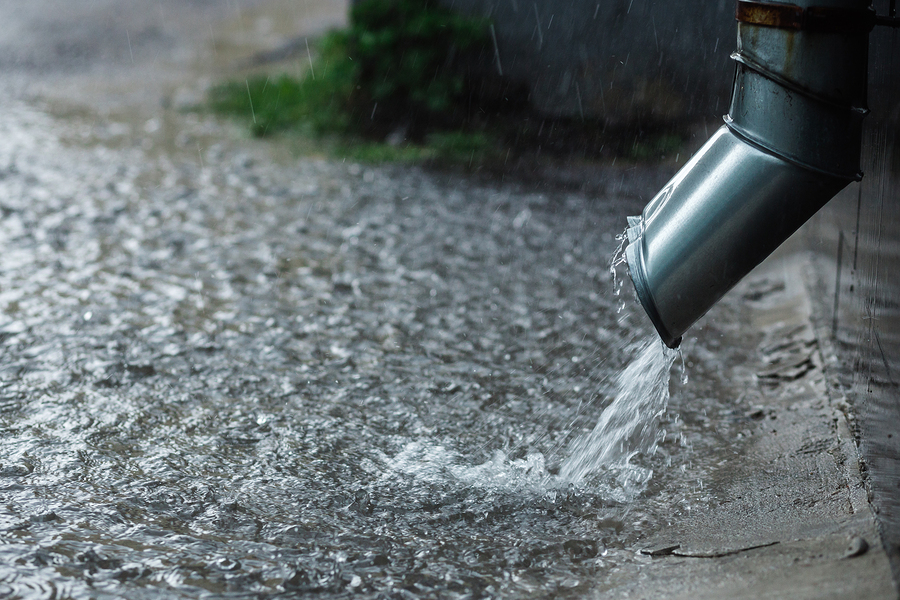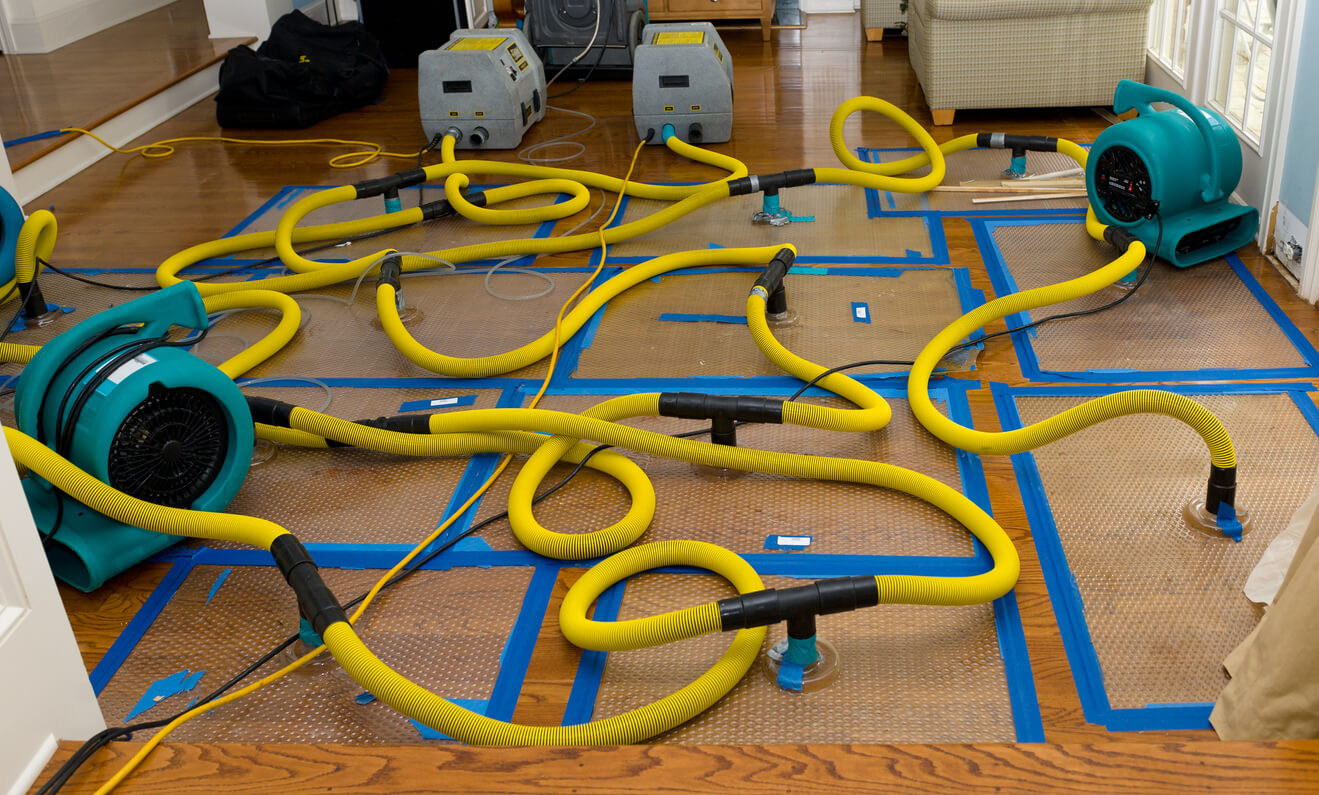Protect Your Home from Heavy Rain Flooding
Americans living along the coastline or near a big body of water aren’t the only people that should be concerned about flooding.
Floods can be caused by a variety of events, such as thunderstorms, overflowing rivers, and rapidly melting snow, meaning flooding can occur essentially anywhere. Even broken dams or levees can cause flooding, as we saw during Hurricane Katrina, when more than 50 levees and flood walls failed in New Orleans and surrounding areas.
In fact, the single biggest rain event ever recorded in the history of the continental United States wasn’t caused by ocean water from a storm surge. It was the catastrophic flooding caused by Hurricane Harvey, a Category 4 storm that dumped more than 60 inches of rain on Nederland, Texas.
Even minor flooding can be costly to homeowners—just one inch of floodwater in your home can cause $25,000 in damage.
However, there are preventative steps that you can take to safeguard your home and its contents from heavy rain damage.
Clean gutters and downspouts. This is routine maintenance for homeowners, but because you likely can’t see inside your gutters most of the time, they can easily be overlooked. That’s a problem, since gutters are designed to direct water from your roof away from your home’s foundation or other vulnerable areas. But, leaves, twigs, and other debris can collect in gutters and downspouts, causing water to back up. And if there’s nowhere for water to go, heavy rain can damage your roof or allow water to collect around your foundation, a bulkhead, or even a window.
If you feel comfortable climbing onto your roof, you can inspect and clear your gutters and drains yourself using a garden trowel, taking care to wear proper hand and eye protection. If you’d prefer to hire a professional, gutter cleaning costs between $118 and $226, depending on factors like how many stories your home has and the condition that your gutters in.
Install French drains. A French drain, also called a rock drain, can help prevent basement or crawl-space flooding by redirecting groundwater away from your house. It’s especially useful if your property has even a slight slope.
During installation, a perforated pipe is placed at the bottom of a narrow trench that’s dug around the perimeter of your home. Gravel or rock is filled in over the pipe and enables water to drain easily into the pipe, which redirects the water away from at-risk areas. A French drain costs, on average, $5,000, or $10 to $50 per linear foot to install.
Install (and maintain) a sump pump. This is an important measure, especially if your basement or crawl space is below the water table. A sump pump is activated automatically when water starts to accumulate in their specifically recessed location in the floor. Sump pumps typically cost between $639 and $2,013 to install. Be sure to test the pump ahead of anticipated heavy rains or other storms, because a broken pump won’t be covered in your home insurance policy without a special endorsement.
Do a roof inspection. Your roof is your home's first line of defense when it comes to heavy rain, so make sure it’s in top shape. A thorough roof inspection goes beyond simply eyeballing shingles to see if any are missing or damaged. In addition to checking shingles, it’s important to inspect flashing, fascia and soffits, and vent pipes. Sounds complicated? It is, which is why this job is usually best left to a professional—a roof inspection cost, on average, $120 to $321.
Protect personal property. It’s a good idea to elevate valuable personal belongings and meaningful items that are stored in your basement. Elevating them above floor level will make them less likely to get wet if your basement floods.
Get flood insurance. More than 25 percent of flood insurance claims are filed by people living in areas with minimal flood risk . And because heavy rain-related damage to a home is not covered by a standard homeowners insurance policy, everyone should have flood insurance.
Don’t have flood coverage? Take the following step today.
Contact Us
Our Risk Coaches™ are standing by to help you supplement protection for you home with flood insurance from the federal government’s National Flood Insurance Program (NFIP) or flood insurance companies. We’ll help you get the right coverage for your home and its contents. Call us at 800.373.5793, Monday through Friday from 8:00 a.m. to 8:00 p.m. ET for a free quote.




